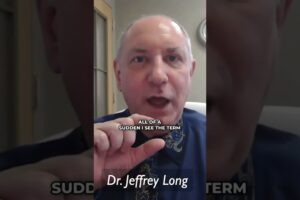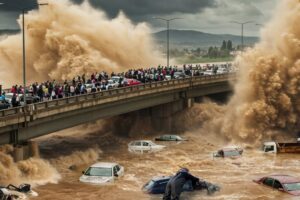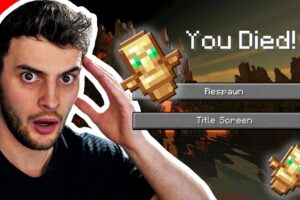
Jeffrey Long, M.D. is a radiation oncology physician practicing in Georgetown, Kentucky. Over 20 years ago he founded the Near-Death Experience Research Foundation (nderf.org). Dr. Long has investigated over 4000 near-death experiences (NDEs), which is by far the largest number of NDEs ever scientifically studied. The results of his previous research were published in the New York Times bestselling book Evidence of the Afterlife: The Science of Near-Death Experiences. Millions of people have seen Dr. Long discuss his research on shows including the NBC Today Show, The Dr. Oz Show, National Geographic television, History Channel, The O’Reilly Factor, and on television broadcasts around the world.
00:00 Intro
0:28 Is the COOL study a potentially optimal method for studying NDEs? (Rahman)
4:00 How would a skeptic know that an NDE isn’t the trick of a dying a brain? (Sandi)
8:00 Do you find NDEs difficult to talk about to others? (To Sandi)
8:48 A response to objections, & a compilation of verified OBEs? (Sandi)
15:00 What are your thoughts on neuroimaging of psychedelic states? (Theo)
19:40 Usage of illegal psychedelic drugs is dangerous
20:46 Elaboration on ‘the Hub’ (Sandi)
24:10 How about the differences between NDEs? (Sandi)
26:55 How do beliefs about the afterlife affect the rate of negative NDEs? (audience)
32:27 Possible relation between NDEs and baptism (Theo)
34:12 Do you think all notions of time are incompatible with NDEs? (EL66K)
42:57 Time as non-fundamental in physics today (Rahman)
46:50 Work on memories between lives? (Rahman)
49:27 Sandi’s thoughts
50:45 It’s human nature to want to be good, and on ‘bad people’ (Sandi)
55:18 Dr. Long’s thoughts on the ‘prison planet’ theory
1:00:35 Sandi’s thoughts on Dr. Long’s observations of consistent features of NDEs
1:06:28 Biggest psychological/cultural barriers when it comes to NDEs? (Rahman)
1:10:07 How would you differentiate a drowning NDE from hypoxia? (Lyndy, NDEr)
1:12:44 Dr. Long’s take on distressing NDEs (Rahman)
1:18:32 Sandi’s disagreement with Dr. Long
1:23:35 Rahman shares a related anecdote
1:24:20 Dr. Long agrees with Sandi
1:24:48 Do you think NDEs can be grokked by the human intellect? (Rahman)
1:33:44 What are other viable explanations for NDEs, besides an afterlife? (EL’s brother)
1:36:45 Internet panic over preliminary AWARE II results
1:39:17 Rahman comments on famous case study related to NDEs
1:41:37 How do you determine whether the responses you get are sincere? (Lothan)
1:44:46 Have you observed seen a surprising pattern in your data? (Lothan)
1:49:00 Muslim NDEs (Rahman)
1:51:25 Metacognition and why some people don’t report NDEs (Theo)
1:56:21 Are Japanese NDEs particularly different? (Sandi)
2:03:18 NDEs may inspire unity in a fractured world (Theo)
2:05:28 The end
source







TIMESTAMPS (chapters not working):
00:00 Intro
0:28 Is the COOL study a potentially optimal method for studying NDEs? (Rahman)
4:00 How would a skeptic know that an NDE isn't the trick of a dying a brain? (Sandi)
8:00 Do you find NDEs difficult to talk about to others? (To Sandi)
8:48 A response to objections, & a compilation of verified OBEs? (Sandi)
15:00 What are your thoughts on neuroimaging of psychedelic states? (Theo)
19:40 Usage of illegal psychedelic drugs is dangerous
20:46 Elaboration on 'the Hub' (Sandi)
24:10 How about the differences between NDEs? (Sandi)
26:55 How do beliefs about the afterlife affect the rate of negative NDEs? (audience)
32:27 Possible relation between NDEs and baptism (Theo)
34:12 Do you think all notions of time are incompatible with NDEs? (EL66K)
42:57 Time as non-fundamental in physics today (Rahman)
46:50 Work on memories between lives? (Rahman)
49:27 Sandi's thoughts
50:45 It's human nature to want to be good, and on 'bad people' (Sandi)
55:18 Dr. Long's thoughts on the 'prison planet' theory
1:00:35 Sandi's thoughts on Dr. Long's observations of consistent features of NDEs
1:06:28 Biggest psychological/cultural barriers when it comes to NDEs? (Rahman)
1:10:07 How would you differentiate a drowning NDE from hypoxia? (Lyndy, NDEr)
1:12:44 Dr. Long's take on distressing NDEs (Rahman)
1:18:32 Sandi's disagreement with Dr. Long
1:23:35 Rahman shares a related anecdote
1:24:20 Dr. Long agrees with Sandi
1:24:48 Do you think NDEs can be grokked by the human intellect? (Rahman)
1:33:44 What are other viable explanations for NDEs, besides an afterlife? (EL's brother)
1:36:45 Internet panic over preliminary AWARE II results
1:39:17 Rahman comments on famous case study related to NDEs
1:41:37 How do you determine whether the responses you get are sincere? (Lothan)
1:44:46 Have you observed seen a surprising pattern in your data? (Lothan)
1:49:00 Muslim NDEs (Rahman)
1:51:25 Metacognition and why some people don't report NDEs (Theo)
1:56:21 Are Japanese NDEs particularly different? (Sandi)
2:03:18 NDEs may inspire unity in a fractured world (Theo)
2:05:28 The end
Simular to Sandi i call the ego the UI or user interface between spirit and earth suit. If it's surrendered to spirit then it works as it can. if it believes it's the boss then that's like a virus in your computer that dosen't allow the 'owner' – spirit – to accomplish intended tasks.
The unique value of life here is resistance to our intentions which necessitates the development of all sorts of abilities like patience, perseverence, creative solutions etc. In the subtle relms what you imagine is instantly manifested. this is an accerated learning enviorment.
So grateful that NDErs like Sandi are speaking about their experiences despite pushback from “debunkers” (I can’t imagine how invalidating that must feel?)
As Nancy Rynes (another NDEr) said, these messages will probably reach the people they’re meant to reach.
Amazing podcast, guys. Good job! One of the best I've heard on the topic, if not the best.
I loved the discussion on time and on distressing NDEs. I wish, though, that someone would have been a bit more knowledgeable on the topic of cultural differences. It is much more than the tunnel/no tunnel issue, and I didn't find Jeffrey's answer appropriate to the topic.
For example, in the Japanese vs Western case, the main difference is lack of the panoramic life review and of personification of the light or being loved by the the light.
"Because of the bright light’s otherworldly nature and the ineffably euphoric feelings the Japanese experiencers felt during their encounters with it, “the bright light” that Moody (1975) described appears to be essentially the same (…) Interestingly, however, none of these experiencers interpreted the light as having a personality”
And the only japanese NDErs with any communication with it or that felt loved by it had either a Catholic background or had studied the NDE phenomenom beforehand.
Also, among other differences, a lack of a panoramic life review has also been seen in many other cultures besides Japan, from whatever little data is available.
Very interesting. Thanks to everyone involved.